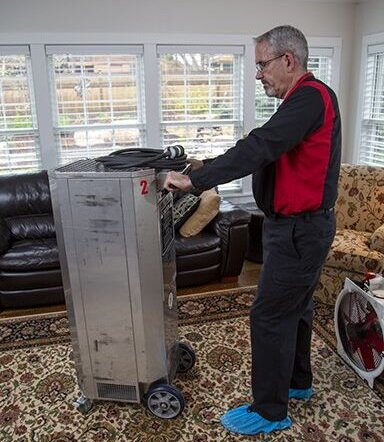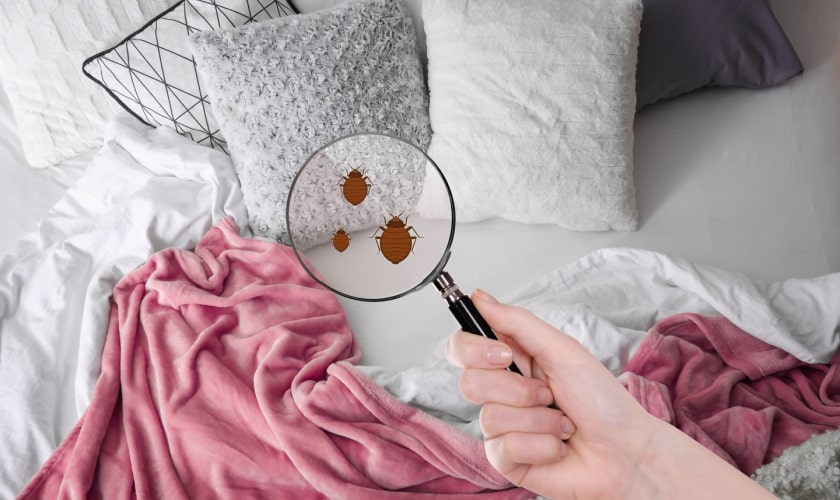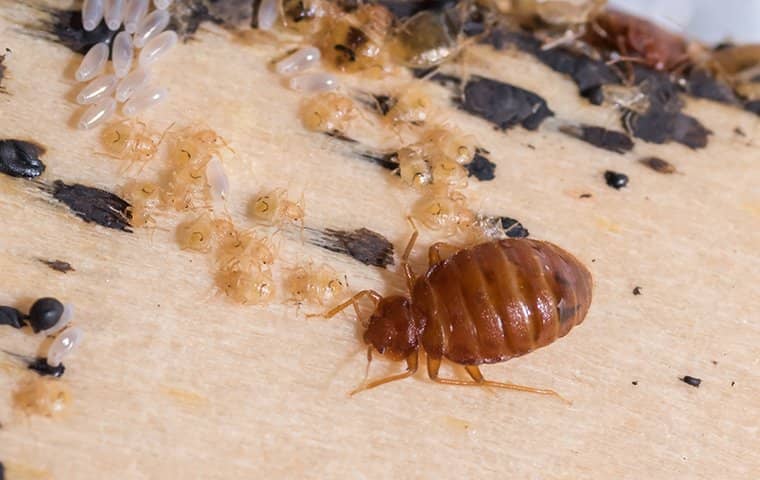Trusted Kings Bug Control Cincinnati OH: Specialist Services
Trusted Kings Bug Control Cincinnati OH: Specialist Services
Blog Article
Sorts Of Insect Control: Which Technique Is Right for Your Invasion?
When confronted with an insect problem, the choice of a suitable technique for parasite control is crucial in efficiently managing the situation. From chemical treatments to biological solutions, there exists a range of strategies that can be employed to address various kinds of parasites. Each approach includes its own set of factors to consider and advantages, making the decision-making procedure a nuanced one. Comprehending the nuances of each method and assessing their compatibility with the particular insect infestation at hand is important for achieving long-term success in parasite monitoring. By discovering the different types of bug control techniques readily available, people can make educated decisions customized to their special scenarios, making sure a much more sustainable and reliable outcome in parasite elimination.
Chemical Parasite Control
Chemical insect control entails the use of artificial or naturally acquired chemicals to manage and remove pest populaces efficiently. This approach is commonly used in farming, forestry, and property settings to deal with a large range of bugs, including rats, weeds, and insects. Using chemical pesticides can provide quick and targeted options to pest problems, making it a prominent choice for several individuals and services.
Among the vital advantages of chemical insect control is its capability to swiftly get rid of bugs, lowering the risk of damage to crops, residential property, and human health and wellness. By utilizing details chemicals that target certain parasites, this method can effectively control problems while minimizing injury to helpful microorganisms and the setting when used correctly.
However, making use of chemical bug control also raises issues about potential unfavorable results on non-target types, water resources, and human health and wellness. It is vital to adhere to safety and security standards, use chemicals properly, and take into consideration different bug control approaches to minimize these dangers and guarantee lasting parasite administration practices.
Biological Insect Control
Organic insect control, additionally known as biocontrol, uses living microorganisms to handle and lower parasite populations normally. By using the insect's all-natural predators or microorganisms, organic pest control provides a eco friendly and sustainable service to pest monitoring.

Mechanical Insect Control
Utilizing physical and manual approaches to handle insect populations, mechanical pest control supplies a different strategy that does not rely upon making use of living organisms or artificial chemicals. This approach includes using obstacles, catches, or other devices to literally prevent or eliminate parasites. By obstructing insect access factors or setting up catches to capture them, mechanical insect control can effectively lower invasions without introducing chemicals right into the atmosphere.
One common instance of mechanical insect control is making use of mesh displays on doors and windows to stop insects from getting in structures. This basic yet effective approach acts as a physical barrier, maintaining bugs out while enabling appropriate ventilation. Furthermore, tools like mousetraps, fly swatters, and ultrasonic repellents fall under the mechanical parasite control classification.
While mechanical parasite control methods can be labor-intensive and call for regular tracking and upkeep, they provide a environmentally pleasant and lasting service for handling pest invasions. By incorporating different mechanical methods, homeowner can produce a detailed pest control method that decreases reliance on chemical pesticides.
Physical Bug Control

Some usual physical bug control techniques include making use of obstacles such as screens or nets to stop pest access, traps to capture and get rid of bugs, and hand-picking to literally remove pests from plants or frameworks. Furthermore, techniques like warmth therapies can be used to regulate bugs like bed bugs by raising the temperature level to levels that are lethal to the insects.
Physical parasite control is especially helpful in integrated pest monitoring (IPM) techniques, where numerous bug control techniques are combined for reliable bug administration while reducing using chemicals. By making use of physical insect control strategies, people can efficiently address bug invasions with marginal environmental effect.
Integrated Pest Management
When applying physical insect control methods as component of pest monitoring techniques, Integrated Parasite Administration (IPM) becomes an extensive strategy that leverages different strategies to efficiently manage pest populaces. IPM focuses on long-lasting avoidance of bugs via a combination of biological, cultural, physical, and chemical devices customized to specific insect problems. By incorporating numerous control tactics, IPM aims to reduce the dangers related to parasites while also Kings cincinnati pest control companies minimizing dependence on chemical remedies.
One trick facet of IPM is the focus on monitoring and assessing pest populations to identify the most suitable control techniques. This positive method enables early intervention and targeted methods, causing a lot more effective bug administration. Furthermore, IPM promotes eco-friendly practices by prioritizing non-chemical control approaches and just making use of chemicals as a last option.
Final Thought

By making use of the parasite's natural predators or pathogens, organic parasite control offers a ecologically pleasant and lasting remedy to pest management. - Kings Bed bug exterminator Cincinnati
Making use of manual and physical methods to manage pest populations, mechanical pest control offers a different strategy that does not count on the usage of living microorganisms or artificial chemicals.A reliable technique to handling bug populaces without depending on chemical or biological methods involves the usage of physical parasite control methods.When executing physical insect control methods as component of bug administration strategies, Integrated Pest Monitoring (IPM) arises as an extensive method that leverages various techniques to properly regulate pest populaces. Chemical parasite control includes the usage of pesticides, biological insect control uses natural killers, mechanical parasite control involves physical barriers, physical insect control consists of capturing or eliminating insects, and incorporated parasite monitoring integrates numerous techniques for a holistic approach to pest control.
Report this page